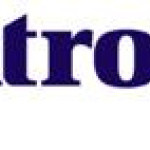- Industry:
- Number of terms: 20560
- Number of blossaries: 0
- Company Profile:
Tektronix provides test and measurement instruments, solutions and services for the computer, semiconductor, military/aerospace, consumer electronics and education industries worldwide.
Although it is customary to make all subjective judgments of image quality from the reference monitor display, the infinite possibilities for monitor adjustments have hampered reviewers in exercising effective program control, and have introduced many disparities and great confusion. The SMPTE Working Group on Studio Monitors, S17.28, is completing work on three specifications intended to make the monitor display follow a known electro-optic transfer function and permit a reliable evaluation of the program image quality.
Industry:Software
The brightness of an area (subjectively) judged relative to the brightness of a similarly illuminated area that appears to be white or highly transmitting.
Industry:Software
The cable that connects the monitor to the workstation to transmit video signals. It has large connector on both ends.
Industry:Software
This measurement method allows for the evaluation of the CAV luminance signal gain and for making chrominance/ luminance gain comparisons. Tektronix has developed the two-dimensional display called the “Lightning” display because of the zigzag trace pattern as shown below.
This display is created by plotting luminance versus B-Y in the upper half of the display and inverted luminance versus R-Y in the lower half of the display. The bright dot in the center of the screen is the luminance blanking level. The points above and below this show the plots of the different color components based on their signal amplitude. This test requires a color bar test signal be used.
Industry:Software
A control monitor is one employed primarily for decisions on subject matter, composition, and sequences to be selected in realtime.
It is frequently one of several monitors mounted together in close proximity as in a studio: for example, to display multiple sources that are to be compared, selected, and combined in editing for immediate, direct routing to display. The physical arrangements may make it very difficult to control the surroundings for each monitor, as specified by SMPTE Working Group on Studio Monitors in Document S17.280 for the reference monitor.
It is nevertheless essential when sequences on several monitors are being compared and intercut that the monitors match in luminance and colorimetry.
Industry:Software
A reference monitor is one employed for decisions on image quality. Achieving controlled reproducibility for this application is the primary objective of the specifications for monitor standardization.
SMPTE Working Group on Studio Monitors, S17.28, has recognized the great disparity now existing among studio monitors and control monitors, and has noted the confusing variability among decisions based upon visual judgments of program quality as evaluated on different monitors. They are working to identify and recommend specifications for the variables affecting subjective judgments, coming not only from the monitor capabilities, but also from the adjustment of its controls and the bias introduced by monitor surround and room illumination.
Industry:Software
Special circuitry is sometimes included in equipment to limit bandwidth or amplitude, i.e., white amplitude in cameras is generally limited.
Saturation of matte generators in switchers are generally limited to stop illegal colors.
Industry:Software
Although it is customary to make all subjective judgments of image quality from the reference monitor display, the infinite possibilities for monitor adjustments have hampered reviewers in exercising effective program control, and have introduced many disparities and great confusion. The SMPTE Working Group on Studio Monitors, S17.27, is completing work on three specifications intended to make the monitor display follow a known transfer function, electro-optic, and permit a reliable evaluation of the program image quality.
Industry:Software
The blanking signal at the end of each horizontal scanning line. Used to make the horizontal retrace invisible. Also called horizontal blanking.
Industry:Software
